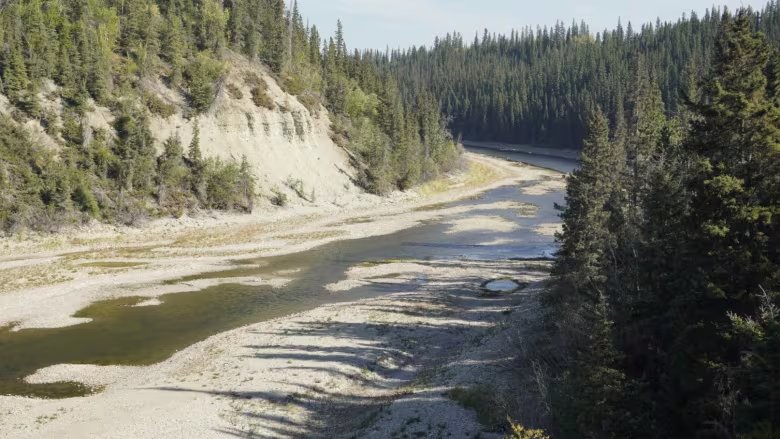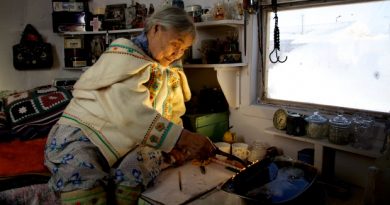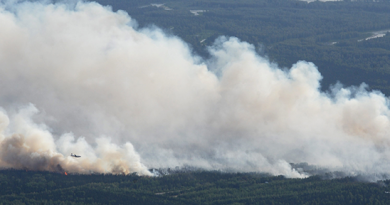Water levels starting to rise in some parts of N.W.T., but still very low

Likely to take a few years for water levels to be back to normal, hydrologist says
Water levels are still very low in most areas of the Northwest Territories, despite an increase in precipitation this past summer.
Water levels have been some of the lowest on record in the past year in water bodies across the territory. On the Slave River, Great Slave Lake and the Mackenzie River, water levels are about where they were last year which is, in many cases, still the lowest on record, according to Ryan Connon, a hydrologist with the government of the Northwest Territories.
“There wasn’t nearly enough rainfall this summer to cause a significant bump in water levels,” he said.
But, Connon said there are some areas that are starting to rebound.
That includes lakes and rivers in the Beaufort Delta region as well as areas north and east of Great Slave Lake, like the Snare River, Lockhart River and Coppermine River.
Higher than normal snowfall and rain has slowly been replenishing some of the N.W.T.’s moisture deficit, Connon said.
“So water levels are still below average in those areas, but not record low anymore,” he said.
Predictions becoming more challenging
Connon said it’ll probably take a few years before water levels return to normal, but as extreme weather becomes increasingly common, making predictions is also becoming more challenging.
From 2020 to 2022 Great Slave Lake had the highest water levels on record, then from 2023 to present it’s at its lowest.
“So we’ve seen these extreme fluctuations that I wouldn’t have predicted five years ago,” he said.
Connon said that we’re moving into a La Niña weather system, which means more snowfall and colder temperatures.
But he added that it’s going to be a weak La Niña, which means expect more snow than usual across the Mackenzie River basin, but not a lot more.
Connon’s “educated guess” is that it will take a couple more years of above average rain and snow before water levels return to normal.
With files from William Firth
Related stories from around the North:
Canada: Yukon officials concerned about possible spring flooding in Old Crow and Klondike Valley, CBC News
United States: Bursting ice dam in Alaska highlights risks of glacial flooding around the globe, The Associated Press



